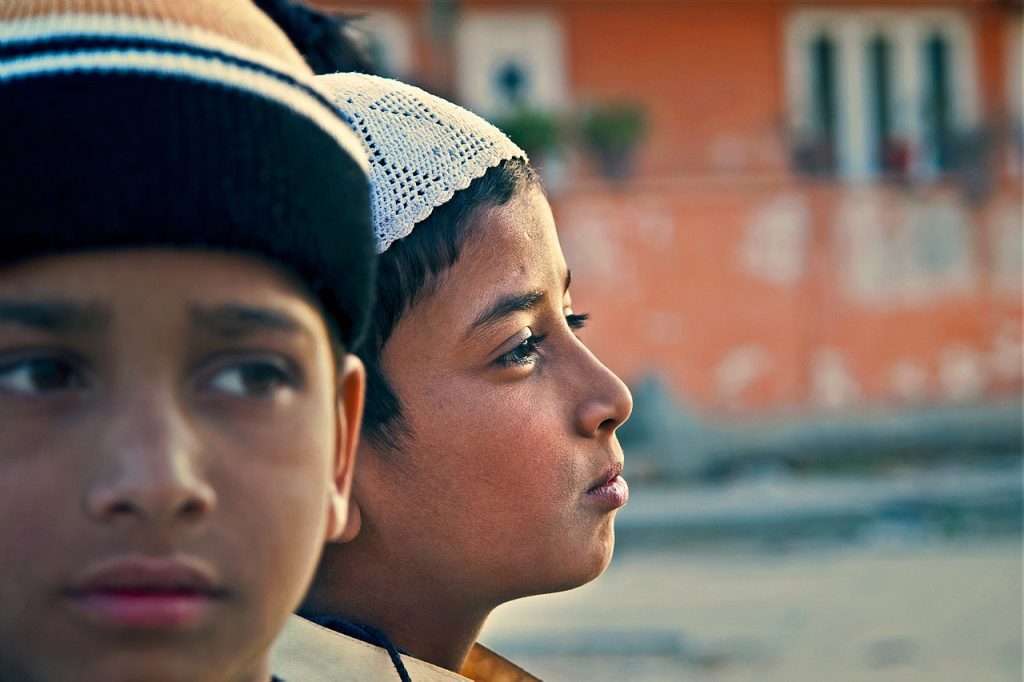
by Saira Imran – Follow @BrownGirlMag
Omar taps away on the hard, cold tiles of the classroom floor — he’s a flurry of activity. He speaks out of turn and rocks back and forth. He’s humming and tapping and making himself at home on the floor of my third-grade classroom.
Almost a sideshow to his production, I stand at the front of the classroom, talking to my students about why we have to be kind to our neighbors. I stare back at a sea of expectant faces and move on with the lesson.
I teach at a weekend school. Every Sunday, upwards of 100 students come to learn the basics of religion and spend time with their peers of similar age, creed, and faith.
Omar is a student who is autistic. Every Sunday, just like me, he wakes up earlier than one should on a weekend and gets dressed. He packs his things and comes to the same weekend facility as I do. He walks the same halls I once did, surrounded by faces that have now become familiar.
Omar, to me, is a maverick. Our small administration and team of teachers and volunteers have grown with Omar and have learned a great deal from him, as well. As a predominantly desi institution, our weekend school is filled with bright youngsters, often dressed in even brighter cultural garb. The kids and their parents populate our halls, but Omar was the first student with special needs to be admitted to our school.
The “brown community” is known for many things: it’s output of highly productive and intelligent adults that populate the highest and most respected fields in this country, for its vibrant and colorful culture, our amazing foods and distinctive traditions. But one of the things we are not renowned for is our attitudes towards people who are not like us.
Omar, however, was met with purposeful intent and the will of devoted teachers. They worked tirelessly to create a space where he could grow and enrich his mind. The children accepted him, and that allowed for him to learn in an environment where he was comfortable.
Omar was the first of many. Our weekend school became home to several students with special needs and their families. It became a place where families could simply be amongst their own and find support. Where families would have stayed away from community events and places out of fear of disapproval, here they were able to find a haven.
[Read Related: Why Living With a Disability Doesn’t Make Me Any Less ‘Marriage Material’]
The concept of community is essential to immigrant families. It’s with our community and ones of our own creed that we try to foster connections that remind us of home. It’s with our community that we share moments of tradition that span generations. It’s with our community that we have to look for solace.
As young adults of the brown community, some of us are still in school, while others may be married and with their own families. It’s up to us to institute a paradigm shift towards the way we view special needs and give these individuals support. The effort of all is essential to our new collaborative.
Now, there are many students like Omar who come in with their aids or parents. Our weekend school was the first to accept and welcome special needs students. We worked tirelessly to accommodate them, and because of that, several other weekend schools across the state have become open and welcoming places for families of all types.
 Saira Imran is a young visionary who is passionate about human rights and public service. She enjoys working with children and spends her free time hiking, with friends and family, and learning how to code. Saira hopes to study computer science in college and to create her own platform that connects students to resources to empower change in their own communities.
Saira Imran is a young visionary who is passionate about human rights and public service. She enjoys working with children and spends her free time hiking, with friends and family, and learning how to code. Saira hopes to study computer science in college and to create her own platform that connects students to resources to empower change in their own communities.




